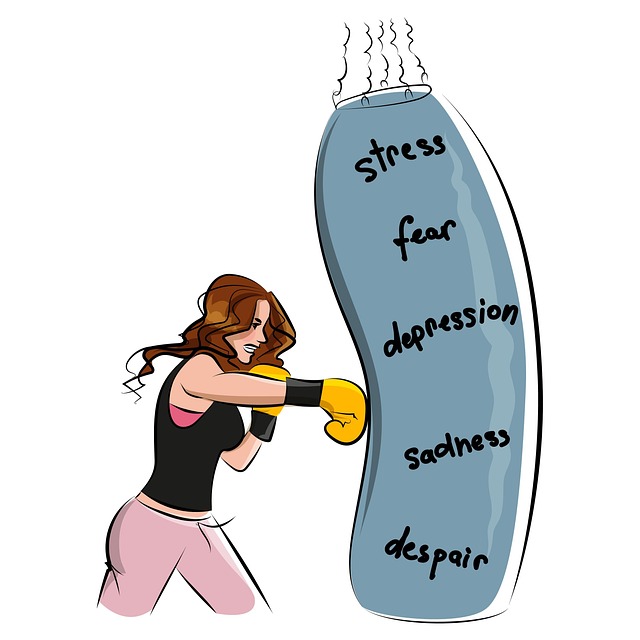The Centennial American Sign Language (CASL) Therapy Approach prioritizes resilience, using the RFM model to build emotional well-being through sign language's expressiveness. This holistic method combines CASL with mindfulness techniques, empowering individuals to manage stress, connect with their emotions, and cultivate a growth mindset. By integrating resilience exercises into daily routines, CASLT fosters emotional intelligence and inner strength, enabling better stress management and adaptability in the face of life's challenges. Success is measured through clear metrics and KPIs, participant feedback, and continuous improvement, enhancing program effectiveness and supporting individuals in trauma support and public awareness campaigns.
“Resilience is a cornerstone of well-being, especially in today’s dynamic world. This article explores the powerful synergy between RFM (Resilience, Flexibility, and Mobility) principles and the Centennial American Sign Language (CASL) therapy approach to enhance resilience. We delve into practical exercises that integrate CASL techniques into daily routines, fostering mental and emotional agility. Additionally, we provide a framework for measuring success and emphasize continuous improvement. By combining these strategies, individuals can navigate life’s challenges with greater ease.”
- Understanding RFM and Its Role in Resilience Building
- The Centennial American Sign Language Therapy Approach
- Implementing Resilience Exercises in Daily Life
- Measuring Success and Continuous Improvement
Understanding RFM and Its Role in Resilience Building

Resilience is a vital component of emotional well-being, enabling individuals to navigate life’s challenges and adapt to change. The RFM (Resilience, Flexibility, and Mastery) model offers a comprehensive framework for fostering resilience. This approach recognizes that building resilience isn’t just about coping with stress but also about cultivating a growth mindset and developing effective coping mechanisms.
Centennial American Sign Language Therapy highlights the significance of RFM in promoting emotional well-being promotion techniques and empathy building strategies. By focusing on these aspects, individuals can enhance their ability to manage and reduce stress, thereby improving overall mental health. The therapy emphasizes practical exercises that encourage flexibility in thinking, emotional regulation, and a sense of control over one’s life—all essential elements for building resilience.
The Centennial American Sign Language Therapy Approach

The Centennial American Sign Language (CASL) Therapy Approach offers a unique and powerful method for fostering resilience and emotional well-being, particularly within communities that value and utilize sign language. This approach leverages the natural expressiveness of sign language to create dynamic therapy sessions that engage both the mind and body. By integrating CASL with mindfulness meditation and emotional well-being promotion techniques, therapists can provide individuals with a comprehensive toolkit for building resilience in the face of life’s challenges.
Through this holistic method, participants learn to connect more deeply with their emotions, enhance their communication skills, and develop strategies to manage stress and anxiety. The interactivity of sign language encourages active participation, making therapy sessions both enjoyable and effective. By embracing the Centennial American Sign Language Therapy Approach, individuals can cultivate a stronger sense of emotional awareness and adaptability, ultimately contributing to improved mental health and overall resilience.
Implementing Resilience Exercises in Daily Life

Incorporating resilience exercises into daily routines is a powerful way to build inner strength and navigate life’s challenges with greater ease. The Centennial American Sign Language Therapy (CASLT) approach offers unique tools for enhancing emotional healing processes, which are particularly beneficial in fostering resilience. Simple practices such as mindfulness meditation, deep breathing techniques, and engaging in creative activities like art or writing can serve as effective crisis intervention guidance, helping individuals develop a sense of calm and empowerment.
These daily rituals allow for self-reflection and the cultivation of emotional intelligence, enabling people to better understand and manage their responses during stressful situations. By integrating CASLT’s inner strength development strategies, individuals can strengthen their mental resilience, ensuring they are equipped to handle life’s storms with adaptability and a renewed sense of hope.
Measuring Success and Continuous Improvement

Measuring success is a critical component of any resilience-building initiative, especially when implementing exercises tailored to the unique needs of communities like those served by Centennial American Sign Language Therapy. By establishing clear metrics and key performance indicators (KPIs), therapists and support staff can objectively assess the effectiveness of their programs. This involves tracking participant engagement, retention rates, and improvements in mental health and communication skills over time. Regularly collecting feedback from both participants and their families is also invaluable, providing insights into what works well and areas that need refining.
Continuous improvement ensures that exercises remain relevant and impactful. Using data gathered through these measures, therapists can adapt their approaches, incorporating new strategies and techniques to better support individuals facing various challenges, including those who may have experienced trauma or require crisis intervention guidance. This dynamic approach fosters a culture of learning and adaptability, reflecting the evolving needs within communities, and ultimately enhancing the overall effectiveness of Trauma Support Services and Public Awareness Campaigns Development efforts.
The implementation of RFM and resilience-building exercises, as outlined in this article, through the lens of the Centennial American Sign Language Therapy Approach, offers a comprehensive strategy for enhancing personal resilience. By integrating these practices into daily life, individuals can develop the mental fortitude to navigate challenges and promote overall well-being. Measuring success involves tracking progress and adapting strategies based on continuous improvement, ensuring a tailored approach that respects individual needs and growth. Embracing this holistic method empowers folks to cultivate resilience, fostering a more adaptive and resilient mindset.














